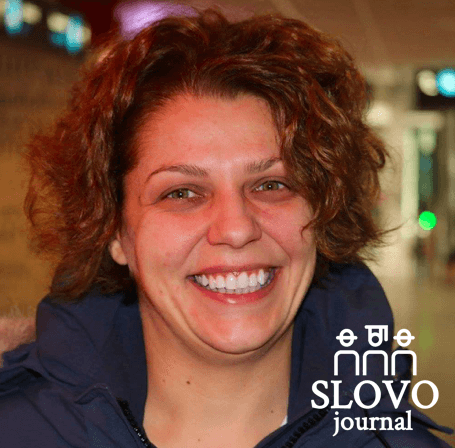Ruxandra Petrinca: Halfway Between Memory and History
By Borimir S Totev, on 24 July 2017
Ruxandra is a historian working on the Communist and Post-Socialist periods. She holds a LL.B and an M.A. in Canadian Studies from the University of Bucharest. After her arrival in Montreal in 2006, she pursued a double specialisation B.A. in English and History, and an M.A. in History at Concordia University. Currently, Ruxandra is a PhD candidate, ABD, with the Department of History and Classical Studies at McGill University, working under the joint supervision of Prof. Catherine LeGrand and Prof. Lavinia Stan (St. Francis Xavier University). Ruxandra’s main research interests include manifestations of dissent and resistance in Communist states. Her thesis examines the evolution and social transformation of the Romanian communities of 2 Mai and Vama Veche as alternative cultural spaces inside an authoritarian regime. Ruxandra is also interested in public memory, propaganda, the role of intellectuals in shaping the transition to democracy in former Communist states, youth sub-culture, socialist film discourse, and radio propaganda. Previous publications by Ruxandra Petrinca include, “Smoke Screens and Liminal Spaces in Socialist Romania: Legacy, Diversity, and Cultural Dissent on the Shores of the Black Sea”, “When Postmodernism Met Authoritarian Socialist Discourse”, review of Sahia Vintage I, Documentary, Ideology, Life, “Choosing to Forget: Politics, Family, and Everyday Life in Stalinist Romania”, and “Recuperating the Communist Past, Romanian Literature and Authoritative Discourse”. For more by Ruxandra, you can view her Academia.edu profile here.
Ruxandra’s article in SLOVO Journal analyses a sample of seven Gulag memoirs that recount experiences of imprisonment at the height of the Stalinist repression in Romania, between 1947 and 1964. The paper looks at the literary conventions employed by the authors in the recounting of their stories. The memoirs were chosen for the broad range of perspectives they represent, with particular attention being paid to the gendered experiences of imprisonment. The texts are approached through the lenses of literary criticism, as the article analyses common tropes, motifs, characters, and techniques of narration – elements that make Gulag memoirs a ‘genre’ in its own right. A close reading of the text will uncover not only the gruesome realities of Communist persecution, imprisonment, and torture, but also the prevailing mentalities of that era. The literary components of the texts provide clues that help in decoding the authors’ self and their understanding of history.
The article ‘Halfway between Memory and History: Romanian Gulag Memoirs as a Genre’ by Ruxandra Petrinca (McGill University, Montreal) was published in SLOVO Journal, VOL 29.1, and can be read in full here.
Posted by Borimir Totev, Executive Editor of SLOVO Journal
 Close
Close



